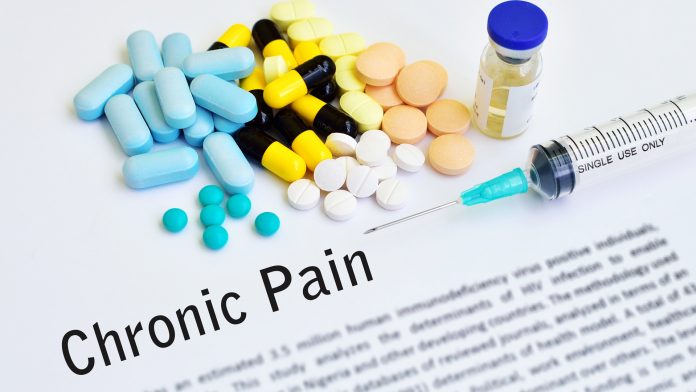Mariano Votta, Director of Active Citizenship Network, speaks to The Innovation Platform about good practices to better address the societal impact of pain.
Chronic pain was part of the list of priorities of the European Union (EU) during the 2014 six-month Italian presidency of the Council of the EU. For the first time, the issue on pain was brought to the attention of all EU health ministers and confirmed in the Council Conclusion during the Maltese Semester Presidency in 2017. In general, the last European Council, Parliament and Commission, have demonstrated the need for the EU to be more attentive towards European citizens that are suffering from chronic pain. Moreover, this attention represents an important heritage for the new European institutions that are called to give continuity and, hopefully, to improve on what the work of their predecessors. For many advocacy groups, their commitment in the area of pain is strictly linked to the principles stated in the “European Charter Of Patients’ Rights”, a milestone to advocate on health issues at the EU and national level, based on the Charter of Fundamental Rights of the EU.1
The Charter was drafted in 2002 by Active Citizenship Network, the EU branch of the Italian NGO Cittadinanzattiva APS, together with many associations and includes ‘The Patients’ Right to Avoid Unnecessary Suffering and Pain’ – “Each individual has the right to avoid as much suffering and pain as possible, in each phase of his or her illness”. This commitment recognises the key role of the civic society as a whole, and is completely in line with the widespread message by the Informal Council of EU Health Ministers in 2014: “It is important to remember the contribution of non-profit associations toward the development and growth of the palliative culture; and the promotion of initiatives to strengthen and support civic organisations in their work to help patients suffering from pain and patients requiring palliative care. It is vital that patients are of their rights and able to make informed choices”.2
Without doubt, much of what has been achieved over the last five years is due to the great work done with transparency and the respect for the institutions by the multi-stakeholder platform “SIP – Societal Impact of Pain”. One of the main goals achieved is the increased constituency of actors across Europe that are active on this topic, year by year. However, as always, expectations are increased with respect to any successful initiative. After achieving one goal, there are still many others that need to be reached. There is still a valid message underlining the aforementioned Informal Council of EU Health Ministers during the Italian Presidency of the Council of the European Union in 2014: “It is of fundamental importance to guarantee access to pain therapy (…) to reduce the existing inequalities in healthcare between regions and Member States of the European Union in the area of equal rights to health”.3
EU civic prize on chronic pain: collecting good practices
To contribute to the reduction of inequalities in the area of pain, Active Citizenship Network promoted in 2020 the third edition of “EU Civic Prize on Chronic Pain – Collecting good practices”. The word ‘civic’ stands for the main characteristic of this initiative, aiming at making the invisible visible from the citizens’ perspective. This prize is the result of the fusion of experiences coming from the constituency of pain and the larger constituency of advocacy groups dealing with patients’ rights, and it testifies a concrete example to transfer the recent achievement on chronic pain from the European political agenda to the EU culture. Thanks to the first two editions, almost 100 good practices were collected.
We like to think that good practices are also a small, but significant indicator of the health status of our healthcare systems, which have long been under pressure between the need for economic sustainability and high expectations of the population. Health protection as a common good should be the common denominator that unites the many stakeholders involved in the health sector, same as the fight against every form of inequality in access to therapies and the guarantee of the quality standards. The area of pain is no exception – reducing inequalities to allow a better quality of life for people suffering from chronic pain is a challenge we will face over the upcoming years.
From the good practices collected, it is clearly demonstrated that it is often the team and not the individual that wins. For instance, multidisciplinary medical teams, collaboration between the public and private sectors, and dialogue between the world of research and patient associations are always present in most of these experiences.
Pain Euro-Mediterranean coalition: the first civic hub-incubator of best practices against pain across Europe
There is still a lack of constructive media attention, and the collection of good practices provides a valuable assist, as it is trying to give emphasis and visibility to what is not visible. With regard to better dissemination, we have convinced the European Commission to add the PAIN topic in its European Best Practice Portal. Additionally, the Active Citizenship Network have decided to promote the first civic hub-incubator of best practices against pain across Europe, –the “Pain Euro-Mediterranean Coalition”, an agora of good practices’ managers on pain to ensure longer life to the good practices and to identify conditions to replicate or implement them in other contexts. An initiative promoted together with the “Sine Dolore European Pain Foundation” and hosted in the framework of the “Sine Dolore World Park”, a unique theme park against pain and for a better quality of life which is organised in Minorca every year. This is an excellent example of an already existing platform addressing the societal impact of pain.
References
- https://ec.europa.eu/health/ph_overview/co_operation/mobility/docs/health_services_co108_en.pdf
- Beatrice Lorenzin, IT Minister of Health, in occasion of the Informal Council of EU Health Ministers, 2014
- “Minister Beatrice Lorenzin’s Opening Speech on pain therapy and palliative care Informal Council of EU Health Ministers”, Milan, 22 September, 2014. http://www.activecitizenship.net/files/patients_rights/Speech_Lorenzin_Handout_Delegate_packs_at_SIP_ENversion.pdf
Mariano Votta
Director Active Citizenship Network
Responsible for EU Affairs at Cittadinanzattiva
Tweet @marianovotta
m.votta@activecitizenship.net
www.activecitizenship.net
Please note, this article will also appear in the first edition of our new quarterly publication.









